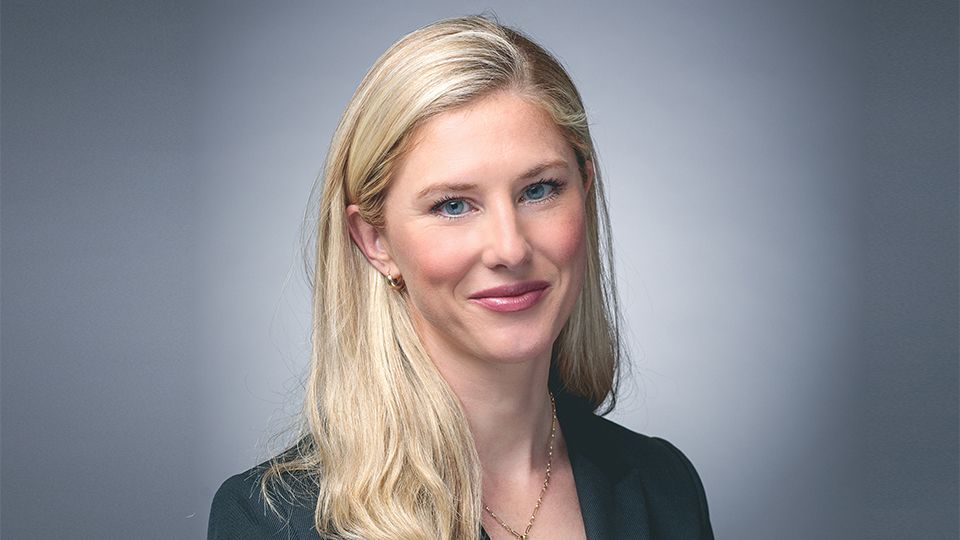In 2016, when I worked at Morningstar, the firm launched its Sustainability Ratings for funds. The ratings weren’t without controversy – fund ratings are rarely universally gratefully received – but they were pioneering. Officially launched at the annual Morningstar Investment Conference in Amsterdam that year, the event’s theme, unsurprisingly, was sustainability.
Early adopter fund managers extoled the virtues of integrating ESG factors as part of their investment processes. Fiona Reynolds, then MD of the Principles for Responsible Investment (PRI), called out the dramatic impact that scandals had on the share prices of BP, GlaxoSmithKline and Volkswagen in recent years. Local business leaders in Holland shared how graduates were choosing their place of work not based on salary or benefits, but on an employer’s commitment to planet and people.
(The late, great, Jack Bogle closed the conference talking about the building of resilient portfolios, not strictly ESG, but pretty epic all the same).
It was, at the risk of fangirling the (green) geeks, an inspiring week, and set in motion my own steadfast belief in ESG investing.
In a video interview I recorded with her at the event, Reynolds said; “One of the problems in responsible investment and about ESG is that there is a lot of confusion around the language and what it means… It isn’t about ethics; this is about risk and how you manage risk.”
It is a mantra that has stuck with me, and when, six years later, I had the opportunity to build out the ESG function at Hargreaves Lansdown (HL) it became the guiding principle to our ESG investment policy, and stewardship and engagement policy. Our vision for ESG at HL is to inspire confidence for a sustainable, resilient and successful financial future. For us, as Reynolds, investing with ESG criteria in mind is simply good risk management.
Investing in sustainable businesses means those that aren’t going to fall foul of regulation, government policy or dwindling consumer demand because of the way they operate. Sustainable businesses are more likely to have sustainable revenues, profits and dividends.
Today, responsible investing is, thankfully, no longer the preserve of pioneers and green geeks. It is, in fact, top of regulator and government committees’ agendas.
Last week, I attended the Business, Energy and Industrial Strategy (BEIS) Committee, called as a witness on the topic of “Environmental, social and corporate governance: Reporting and investing”. My fellow panellists were Joanna Allen, CEO of Graze and campaigner for Better Business Act, and Aneesh Raghunandan, assistant professor of accounting at London School of Economics.
The three of us come from three different industries but were united in our belief that incorporating ESG factors into the way businesses are run, and the way they report to shareholders, is a good thing for their customers, employees and society.
The ask however – and the key message from the BEIS Committee – is that this reporting is done in a consistent and standardised way.
The regulator is, of course, already working on a framework to bring this much-needed consistency to the fund management industry in the form of Sustainability Disclosure Requirements (SDR). And the Taskforce for Climate-related Financial Disclosure (TCFD) is a welcome initiative to disclose climate-related risks. But when it comes to company reporting on wider ESG issues there is still much variance on data points and availability.
Homogeneous terminology will help investors make better-informed decisions – and help businesses to operate within a consistent framework, reporting consistent metrics to shareholders, customers and employees.
Employees are an important but sometimes forgotten beneficiary and benefit of a company’s good ESG principles. Because, as the Dutch business owners shared over short coffees in Amsterdam six years ago, now here in the UK people want to go to work for businesses that care about more than just short-term profits.
At HL, colleagues volunteer their time to support local green initiatives, such as the rewilding of College Green to increase biodiversity in the city centre, beach cleans at nearby locations and the planting and maintenance of 2,000 trees in a local woodland. We are supportive of Bristol’s net zero by 2030 plans.
ESG is a talent acquisition tool, as well as a way to deliver better, planet, society and investor outcomes.
For successful ESG plc reporting, there has to be scalability – reporting has to be as easy for the largest companies in the FTSE 100 as for a private start-up – which is why keeping it simple and standardised is key. This is not about introducing 200 data points to your annual reporting. Not least because you end up creating more of an issue than you are trying to solve, and it becomes confusing for the customer, employee or investor. With a few standardised data points, and support for SMEs, with templates and guidance, the panel agreed that it is possible for it to be scalable.
The BEIS Committee questioned whether this focus on ESG principles came at the expense of profits. And if you are only looking one financial year into the future, then perhaps this is up for debate. But if you are not being short-termist, you can serve all masters. Happy employees are more productive. More productive employees should generate more revenue, which in turn should make your shareholders happy.
And if you’re still not convinced? What about the lure of capital? Some $120bn went into ESG investment products in the first half of this year globally, and $140bn was pulled from non‑ ESG investment products. Money talks, and it is green.








